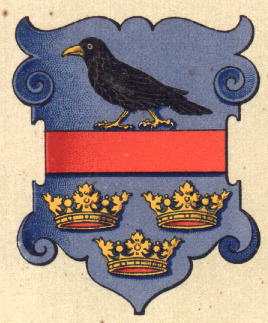Kingdom of Galicia: Difference between revisions
Knorrepoes (talk | contribs) m (Text replacement - ".jpg|center]] ====Official blazon====" to ".jpg|center|Arms of {{PAGENAME}}]] ====Official blazon====") |
Knorrepoes (talk | contribs) m (Text replacement - "|Arms of {{PAGENAME}}" to "|Arms (crest) of {{PAGENAME}}") |
||
| Line 7: | Line 7: | ||
'''KINGDOM OF GALICIA''' | '''KINGDOM OF GALICIA''' | ||
[[File:galicia.ahe.jpg|center|Arms of {{PAGENAME}}]] | [[File:galicia.ahe.jpg|center|Arms (crest) of {{PAGENAME}}]] | ||
====Official blazon==== | ====Official blazon==== | ||
Revision as of 10:24, 8 January 2017
| Heraldry of the World Civic heraldry of the Austro-Hungarian Empire |
KINGDOM OF GALICIA
Official blazon
Origin/meaning
The Kingdom of Galicia (now part of Poland) originally was a Ruthenian (=now part of Ukraine) principality, which became a Kingdom in the 13th century. In 1340 the kingdom became part of Poland. The Hungarian Kings, however also claimed the territory. After the first Polish division in 1772 it was acquired by Austria, but was incorporated into the Austrian part of the Empire.
The arms were first used in the arms of King Mathias of Hungary, as a claim for the territory in 1475. Later Kings of Hungary and Emperors of Austria-Hungary used the three golden crowns for Galicia. In 1804 the red bar and the crow, derived from the arms of Halicz were added. Halicz was the original capital of Galicia. From 1772-1918 Lemberg (now Lviv, Ukraine) was the capital.
Contact and Support
Partners:
Your logo here ?
Contact us
© since 1995, Heraldry of the World, Ralf Hartemink 
Index of the site
Literature : Ströhl, 1890










